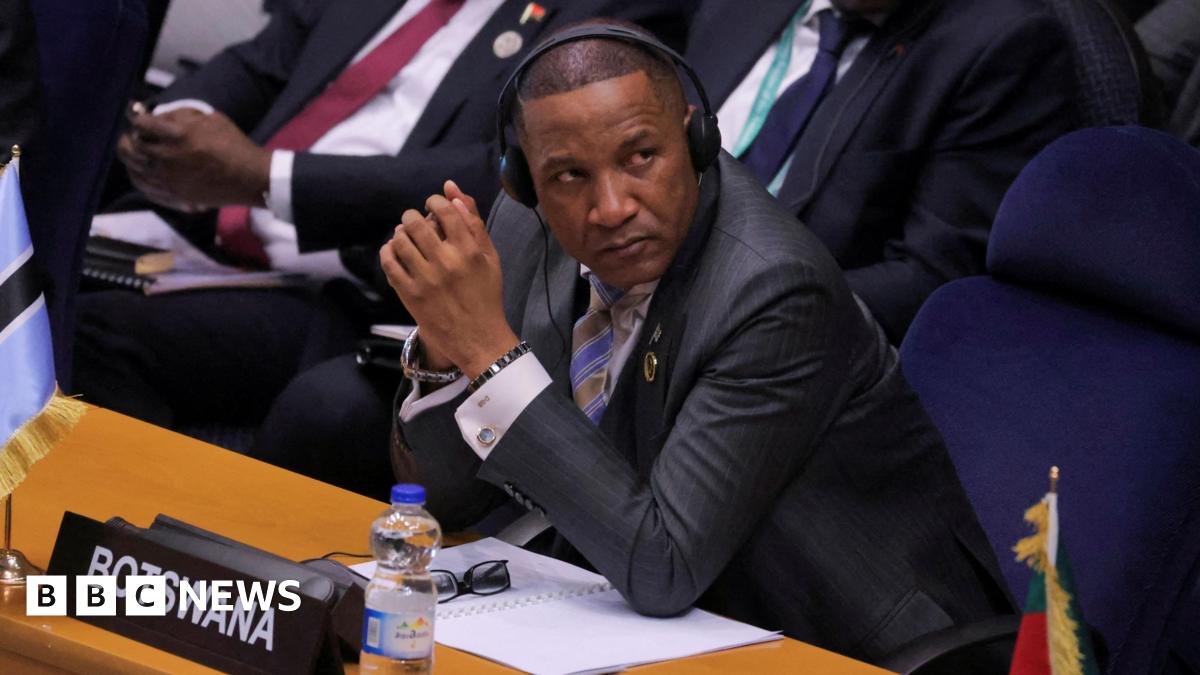Botswana Declares Public Health Emergency Amidst Critical Medicine Shortages

Nation Grapples with Severe Supply Chain Issues
Gaborone, Botswana – Botswana has officially declared a national public health emergency following a severe and escalating shortage of essential medicines and vital medical equipment. The announcement, made by President Duma Boko in a televised address on Monday, underscores the gravity of the situation and the government’s commitment to addressing it swiftly and decisively.
The crisis stems from significant disruptions within the country's supply chain, impacting hospitals and clinics nationwide. Patients are facing delays in receiving necessary treatments and procedures, raising serious concerns about public health and well-being. The shortage isn’t limited to specific medications; it encompasses a broad range of essential supplies, including diagnostic tools and equipment crucial for effective healthcare delivery.
President Boko Outlines Emergency Response Plan
President Boko detailed a comprehensive, multi-million Pula plan aimed at rectifying the supply chain issues and ensuring the timely availability of essential medical resources. A key component of this plan involves the deployment of military oversight to streamline procurement, distribution, and logistics. This move is intended to bypass bureaucratic hurdles and expedite the flow of supplies to healthcare facilities.
“The situation demands immediate and robust action,” stated President Boko. “We recognise the anxiety and hardship this shortage is causing our citizens, and we are fully committed to resolving this crisis with the utmost urgency. The involvement of the military is a temporary measure designed to ensure efficient and equitable distribution of resources while we work to establish a more resilient and sustainable supply chain in the long term.”
Root Causes and Future Strategies
While the immediate focus is on addressing the current shortage, the government is also undertaking a thorough investigation into the root causes of the supply chain failures. Preliminary findings suggest a combination of factors, including procurement inefficiencies, logistical challenges, and potential external market pressures.
Moving forward, the government plans to implement several key strategies to prevent future crises. These include:
- Diversifying suppliers to reduce reliance on single sources.
- Strengthening procurement processes to ensure transparency and accountability.
- Investing in improved storage and distribution infrastructure.
- Establishing strategic reserves of essential medicines and equipment.
Impact on Healthcare Services and Public Concerns
The public health emergency declaration allows the government to mobilise additional resources and implement emergency measures to mitigate the impact on healthcare services. Hospitals are being urged to prioritise essential treatments and to ration supplies where necessary. The Ministry of Health is actively communicating with the public, providing updates on the situation and offering guidance on accessing healthcare services.
The crisis has understandably sparked public concern, with many citizens expressing anxiety about the availability of essential medical care. The government is working to reassure the public that every effort is being made to resolve the situation and to safeguard the health and well-being of all Batswana.
The coming weeks will be crucial as the emergency response plan is implemented and the government works to restore the stability of the healthcare supply chain. The nation looks to President Boko and his administration to deliver on their promise of a swift and effective resolution to this critical challenge.






